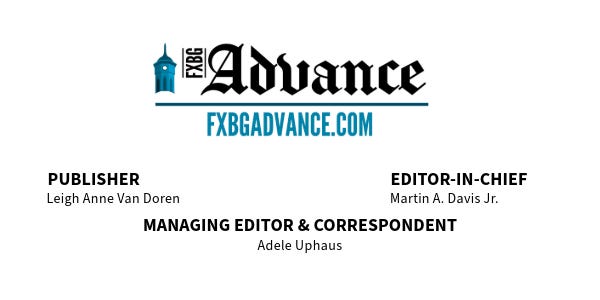
Candidate Harris has a plan to help care for seniors who require expensive at-home health care services. Can afford it? Can we not?
Presidential candidate Kamala Harris is proposing to have Medicare pay for home health services for seniors and the disabled covered under the program. Given that at-home care can be very costly, and with many seniors having difficulties with activities of daily life, a good many Americans are probably thinking that it’s about time.
Activities of daily life include dressing, eating, bathing, and toileting, and nearly one in five Americans over 65 (and nearly half over age 85) have difficulties with them. The U.S. Department of Health and Human Services has estimated that half of all seniors will need some long-term care. Since many families cannot afford to pay for these services, the job of caring for loved ones falls on family members, many of whom are forced to forgo jobs and careers to do so. Most affected are the “sandwich generation”, who are caught between caring for their children as well as elderly and needy parents. A quarter of Americans over the age of 50 now help care for a friend or family member who is ill or disabled.
Subscribed
When such care is beyond the capabilities of family members, the next step is paying for home care—but most families can’t afford it. This might mean removal to a nursing home, which most families want to avoid, and which can be very expensive — reaching $100,000/year; again, beyond the reach of most families.
Medicaid will pay for nursing home care, but in order to qualify for Medicaid, you have to be poor, meaning both depleting any family savings (called the “spend down”) as well as having little income—an enormous economic burden.
Enter insurance. Its role is to protect people and businesses from unexpected and onerous expenses. Think home insurance if your house burns down. Healthcare should be no different: health insurance can and should protect all families from the high costs of healthcare when someone gets sick.
The way to keep insurance costs down is to expand the pool of covered lives to everyone — the bigger the pool, the lower are individual contributions — especially since everyone will likely need to use health insurance to help them cover their own healthcare costs at some point. The way to keep administrative costs down is to use a not-for-profit organization — like Medicare. Doing this on a national level under Medicare sounds like an excellent solution.
But it should be done under not-for-profit Traditional Medicare (TM), not a private insurer such as Medicare “Advantage”.
What’s the difference?
TM was originally developed by President Lyndon Johnson in 1965 as a public good meant primarily to benefit the American people. Over the last few decades, however, private, for-profit so-called “Advantage” plans have become a major Medicare player. These plans have become popular because Congress has given them certain advantages over TM, starting with much lower premiums, because Uncle Sam pays Advantage companies directly for each patient enrolled with that company. (Seniors choosing TM usually opt for supplemental Medigap plans — from for-profit health insurance companies — to cover costs that TM does not.)
However, there are multiple disadvantages to these mostly private “Advantage” plans: limited networks of providers and hospitals; prior authorizations that can delay and limit care; outright denials of care your doctor thinks is necessary; and studies claiming that Advantage plans overcharge Uncle Sam (i.e., every American taxpayer) as much as $140 billion/year.
Can we afford such a program?
Harris says she can pay for these new benefits (one estimate runs $40 billion/year) with savings from paying less for seniors’ medications, as well as making it means-tested (which involves a costly bureaucracy that takes even more dollars away from actual healthcare—a bad idea.)
But beneficial programs like this (and even nursing home costs) can easily be funded from the huge number of dollars we waste on running our current health insurance system, which could be as much as $1 trillion of the nearly $5 trillion we’ll spend on healthcare this year. This waste includes $600 billion (in 2019 dollars) in yearly administrative costs. You could fund a lot more healthcare with that trillion dollars.
Extending Medicare to include long-term care is extremely popular—nearly 9 out of 10 taxpayers support it. Of course, the politically powerful health insurance and nursing home industries, worried that such a public good might diminish their bottom lines, will oppose it, more so if it’s run, as it should, under not-for-profit Traditional Medicare where all beneficiaries will be fully covered. Look for a big battle in Congress.
Let’s hope that our Washington politicians can finally come together and do what’s not only so popular but right: extend this healthcare benefit to everyone on Medicare. Then extend it to all age groups. After all, shouldn’t great healthcare for everyone be both bipartisan and nonpartisan?





Local Obituaries
To view local obituaries or to send a note to family and loved ones, please visit our website at the link that follows.

Support Award-winning, Locally Focused Journalism

The FXBG Advance cuts through the talking points to deliver both incisive and informative news about the issues, people, and organizations that daily affect your life. And we do it in a multi-partisan format that has no equal in this region. Over the past month, our reporting was:
$8 a month supports great journalism
- First to report on a Spotsylvania School teacher arrested for bringing drugs onto campus.
- First to report on new facility fees leveled by MWHC on patient bills.
- First to detail controversial traffic numbers submitted by Stafford staff on the Buc-ee’s project
- Provided extensive coverage of the cellphone bans that are sweeping local school districts.
- And so much more, like Clay Jones, Drew Gallagher, Hank Silverberg, and more.
For just $8 a month, you can help support top-flight journalism that puts people over policies.
Your contributions 100% support our journalists.
Help us as we continue to grow!
Support FXBG Advance for $8 a month







